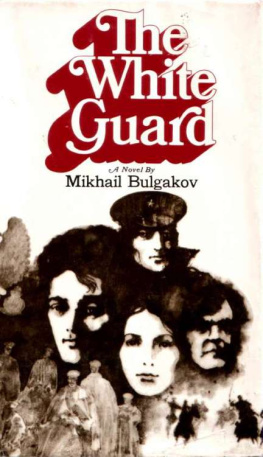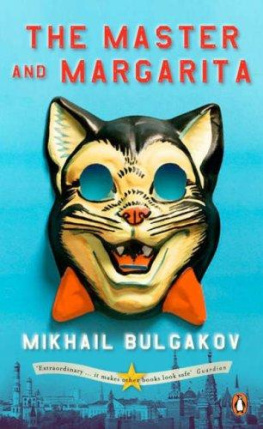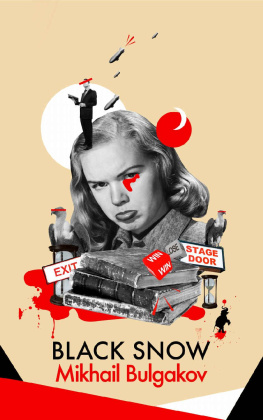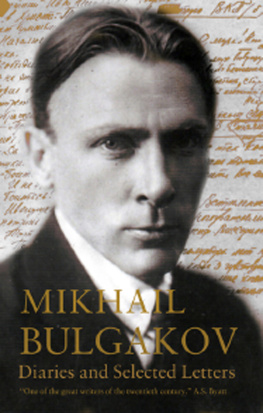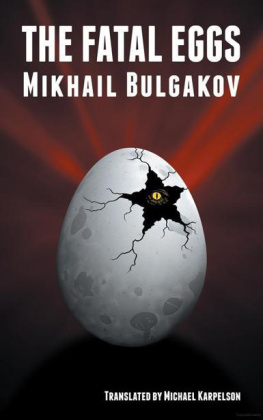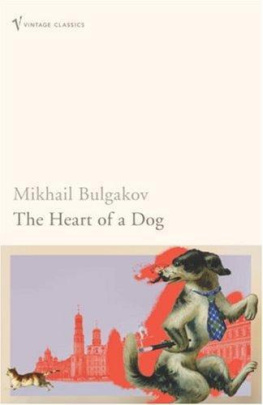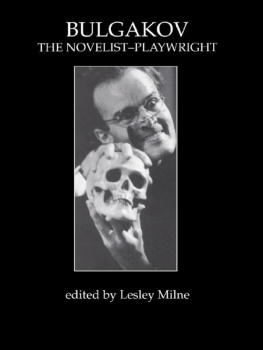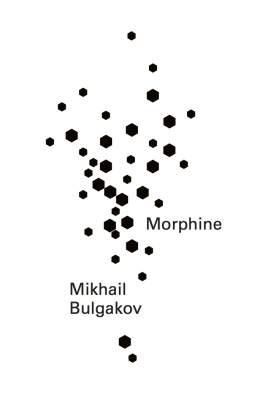Mikhail Bulgakov - The Fatal Eggs and Other Soviet Satire
Here you can read online Mikhail Bulgakov - The Fatal Eggs and Other Soviet Satire full text of the book (entire story) in english for free. Download pdf and epub, get meaning, cover and reviews about this ebook. year: 2007, publisher: Grove / Atlantic, genre: Detective and thriller. Description of the work, (preface) as well as reviews are available. Best literature library LitArk.com created for fans of good reading and offers a wide selection of genres:
Romance novel
Science fiction
Adventure
Detective
Science
History
Home and family
Prose
Art
Politics
Computer
Non-fiction
Religion
Business
Children
Humor
Choose a favorite category and find really read worthwhile books. Enjoy immersion in the world of imagination, feel the emotions of the characters or learn something new for yourself, make an fascinating discovery.

- Book:The Fatal Eggs and Other Soviet Satire
- Author:
- Publisher:Grove / Atlantic
- Genre:
- Year:2007
- Rating:5 / 5
- Favourites:Add to favourites
- Your mark:
- 100
- 1
- 2
- 3
- 4
- 5
The Fatal Eggs and Other Soviet Satire: summary, description and annotation
We offer to read an annotation, description, summary or preface (depends on what the author of the book "The Fatal Eggs and Other Soviet Satire" wrote himself). If you haven't found the necessary information about the book — write in the comments, we will try to find it.
The Fatal Eggs and Other Soviet Satire — read online for free the complete book (whole text) full work
Below is the text of the book, divided by pages. System saving the place of the last page read, allows you to conveniently read the book "The Fatal Eggs and Other Soviet Satire" online for free, without having to search again every time where you left off. Put a bookmark, and you can go to the page where you finished reading at any time.
Font size:
Interval:
Bookmark:
the FATAL EGGS
AND OTHER SOVIET SATIRE 1918-1963
AND OTHER SOVIET SATIRE 1918-1963
Edited and Translated by
MIRRA GINSBURG

Copyright 1964, 1965 by Mirra Ginsburg
All rights reserved. No part of this book may be reproduced in any form or by any electronic or mechanical means, or the facilitation thereof, including information storage and retrieval systems, without permission in writing from the publisher, except by a reviewer, who may quote brief passages in a review. Any members of educational institutions wishing to photocopy part or all of the work for classroom use, or publishers who would like to obtain permission to include the work in an anthology, should send their inquiries to Grove/Atlantic, Inc., 841 Broadway, New York, NY 10003.
This edition published by arrangement with The Macmillan Company, New York. The Fatal Eggs first appeared in an abridged form in Fantasy and Science Fiction; A Glass of Water appeared in The Reporter.
Published simultaneously in Canada Printed in the United States of America
Library of Congress Cataloging-in-Publication Data
The fatal eggs, and other Soviet satire.
1. Satire, RussianTranslations into English.
2. Satire, EnglishTranslations from Russian.
I. Ginsburg, Mirra.
PG3266.F37 1987 891.77408 87-214
eBook ISBN-13: 978-0-8021-9587-6
Grove Press
an imprint of Grove/Atlantic, Inc.
841 Broadway
New York, NY 10003
Distributed by Publishers Group West
www.groveatlantic.com
Note
Note
Note
Note
Note
Note
Note
Note
Note
Note
Note
E. Bermont
A Timid Soul
Arkady Vasiliev
The Crystal Vase
L. Lagin
Grandmothers Cake
N. Vorobyov
For the Birds
Boris Laskin
Festival in the Town of N.
E. Vesenin
On the Left Foot
Note
Note
Literature is not social history. And yet, since satire is, perhaps, the least abstract of literary forms, the stories in this collection are a living witness to some fascinating decades in the history of a unique and paradoxical country.
The Russian Revolution released a great flow of creative energy. It may be difficult for a citizen of a relatively stable society to visualize the utter collapse and disintegration of the entire familiar fabric of lifesocial, cultural, and economicthat occurred in Russia in the early revolutionary period. Yet, in the midst of chaos and conflict, war and hunger and cold, there was a marvelous emergence of a brilliant and varied literature. There were suffering and privation, but also a great sense of release and a sense of the future. There was a proliferation of literary experiments and schools of every kind, of story, poetryand laughter. Out of the endless confrontations of the old and the new, out of the efforts of the common nonpolitical people in the cities and villages to survive or even to get ahead in a world suddenly turned topsy-turvy, and out of the efforts of political theorists to impose orderof their particular varietythere arose a million tragicomic incidents and situations. And these were richly reflected in the writings of the brilliant satirists who appeared on the literary scene, who, indeed, seemed almost to have been made to order for the epoch.
The stories of the first post revolutionary decade, embracing the period of Civil War and War Communism (1917-1921) and the subsequent years of reconstruction under the New Economic Policy (NEP, 1921-1928), mirror the famine, the disrupted transportation, the new rules governing marriage and divorce, the response of the peasants and city people to the new government and the new morality, the continuing shortages of food and housing, the low quality of production, the temperance and literacy campaigns, the efforts to abolish religion, the ephemeral, frenetic prosperity of the NEP, and, already, the looming problem of bureaucracy.
Much of the satirical writing of the early period was boldly irreverent. But the voices of those who, though not hostile to the aims of the new regime, insisted on expressing their own vision of the time and refused to fit themselves into the framework demanded by the State and the Party were not permitted to be heard very long. As the dictatorship entrenched itself, independent voices were silenced.
The 1930s, with their increasingly ruthless insistence on conformity, their terror and mass purges, were years of rapid decline. Vladimir Mayakovsky, bold satirist as well as poet and propagandist, shot himself in 1930one of many who chose to die. Yevgeny Zamyatin was forced to emigrate. Mikhail Bulgakov was refused publication. Panteleymon Romanov was unable to publish. Isaac Babel and Yury Olesha, whose work contained a strong vein of satire, became masters of silence long before their arrests in the latter part of the decade. (Babel, like so many others, died in a concentration camp.) Valentin Katayev submitted to pressure. Mikhail Zoshchenko had more and more difficulty in following his own bent. And even Ilf and Petrov were subjected to severe attacks for their novels and were largely reduced to writing feuilletons on requisite topics.
The satirical writing of the early 1940s, such as it was, was directed chiefly at the wartime enemy. During the postwar years, with the renewed tightening of the dictatorship, satire was virtually impossible, except on a very few rigidly prescribed topics. Bureaucracy, sycophancy, and red tape were among them, as they had been in the 1930s. In a rather ironic confrontation, this most bureaucratic of societies struggled to rid itself of its own inevitable attributes (relics of the bourgeois past, as they were persistently and euphemistically called).
The 1950s and early 1960s were years of somewhat greater variety and range. But Soviet literature still had and, indeed, still has a very long way to go to catch up with its own past. And this is particularly true of satire.
Throughout the years of eclipse, the cry was raised repeatedly: We need laughter! This was invariably qualified: We need healthy, positive, life-affirming laughter, clearing the way to a Communist future. The makers of a grimly humorless society demanded humorbut made to their own specifications and serving their own ends. Another problem that bedeviled Soviet writers generally and satirists particularly was the fear of generalizations, particularly negative generalizations, which might be construed as inimical to the regime, and the problem of the positive and negative hero. Endless discussions went on about the kind of hero needed and properly portrayed in literature. In the end, even the satirists began to introduce positive characters to lecture and put in place the offenders who were their original target.
Through all this, appeals from above continued to call for new Gogols and Shchedrins. They stubbornly failed to appear. After the elimination of the great satirists of the earlier period, all that was left was the obedient writer of the so-called feuilleton half skit, half didactic fable, often based on actual incidents, with an obvious, very elementary, and very explicit point, illustrating whatever social ill, corrupt relic of the past, or contagion from the West was currently under attack. The authors of these
Next pageFont size:
Interval:
Bookmark:
Similar books «The Fatal Eggs and Other Soviet Satire»
Look at similar books to The Fatal Eggs and Other Soviet Satire. We have selected literature similar in name and meaning in the hope of providing readers with more options to find new, interesting, not yet read works.
Discussion, reviews of the book The Fatal Eggs and Other Soviet Satire and just readers' own opinions. Leave your comments, write what you think about the work, its meaning or the main characters. Specify what exactly you liked and what you didn't like, and why you think so.

